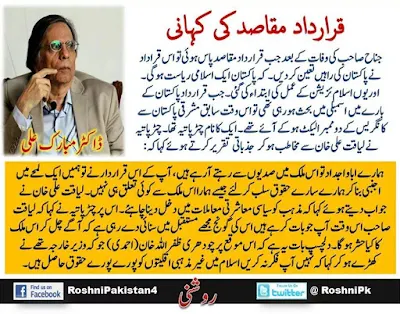On October 16, 1951, Pakistan’s first prime minister Liaquat Ali Khan was assassinated in Rawalpindi's Company Bagh (also known as East India Company Garden) during a public meeting of the Muslim City League.
'
Liaquat's 'Afghan' assassin
In his book, "The American Role in Pakistan", M. S. Venkataramani writes that a single bullet from Liaquat Ali Khan’s assassin proved to be the catalyst of change. Pakistani officials quickly declared that the assassin Said Akbar was an Afghan national.
An Afghan government spokesman insisted that Akbar had already been stripped of his Afghan citizenship for his anti-national activities and that the British rulers of pre-partitioned India had given him refuge in the North Western Frontier Province (now Khyber Pakhtunkhwa). Soon it was revealed that the Pakistani government continued to pay Said Akbar his welfare allowance as determined by the English masters of the sub-continent.
The New York Times ran an Associated Press story which quoted Pakistani officials as saying that Said Akbar, the Afghan national who had assassinated the prime minister, had been receiving a monthly allowance of Rs450 (USD 155) from the government of Pakistan.
It is an undisputed fact that Liaquat’s assassin Said Akbar was sitting in front of the stage in a row of chairs designated for the Crime Investigation Department (CID) police officers. The place he had positioned himself in allowed him to target Liaquat Ali khan.
How did he get there?
It is a question that remains unanswered and a subject of speculation even after 55 years. Akbar was shot dead by police at the same spot, minutes after he had assassinated the prime minister; his death deepened the mystery surrounding this high-profile murder.
The New York Times reported that moments after Akbar had fired two shots, people sitting nearby pounced at him and dismembered him; he was also shot at, and at least one bullet was fired by a police officer, who later testified that he was ordered to shoot the assassin by a senior police official.
By killing Said Akbar, instead of arresting him, police officers eliminated a crucial piece of evidence; similarly, when Benzair Bhutto was assassinated in 2007 as she left Liaquat Garden after a public gathering, Rawalpindi’s Fire Department was quick to wash the crime scene, depriving investigators of important evidence. It placed another question mark on the country’s history of unsolved assassination cases.
“Nawabzada Aitzazuddin, who was travelling to meet Prime Minister Khawaja Nazimuddin having been summoned by him and who was carrying important documents about the investigation of this case, was killed in an air crash. The aeroplane crashed near Jhelum after developing a mechanical fault, which started a fire onboard, and all the passengers, their luggage (including documents on Liaquat Ali Khan’s assassination) were burnt. After Liaquat Ali Khan’s assassination, when a new cabinet was formed, Nawab Mushtaq Ahmad Gurmani, who was minister for Kashmir affairs in the old cabinet, became the country’s new interior minister. When an investigation into the assassination was initiated, Gurmani came under sharp criticism. To ward of the censure, he, after much delay, sought help from the Scotland Yard, hiring an experienced investigator to solve the case. But this was only an attempt to save face. The motives behind Liaquat’s murder would never come to light.”





























No comments:
Post a Comment